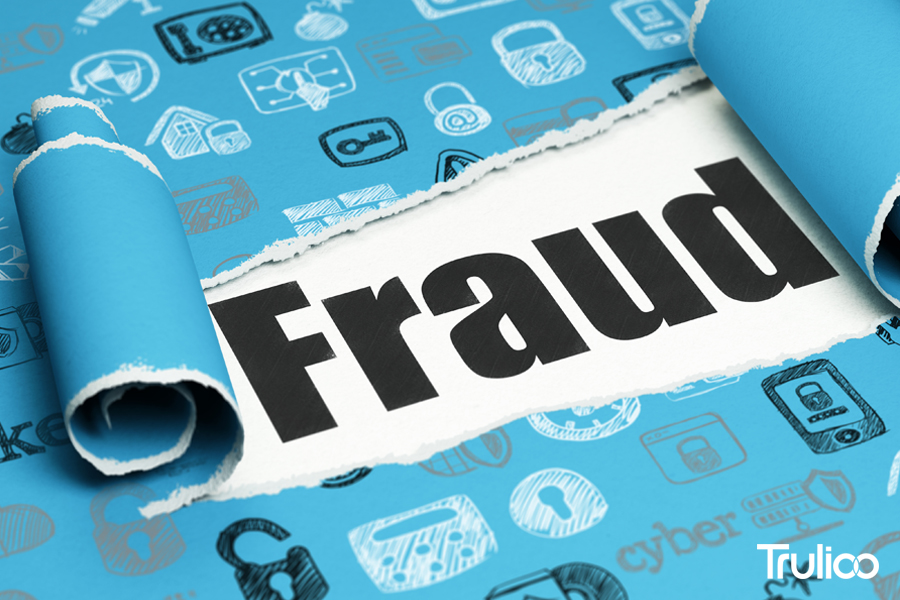Do you think you could be a victim of fraud? How often do you think about protecting yourself from fraudulent activity? Unfortunately, it’s often too late and we’re forced to face fraud after we’ve already fallen victim to it. Fraud can happen to anyone, anywhere and anytime. There’s a high probably you’ve already encountered sketchy activity. Perhaps you’ve received fraudulent emails, ambiguous phone calls, viewed fake online ads, questionable posts on social networking sites or maybe someone has even solicited you at home?
Avoid becoming a victim! Especially in today’s digital world, safety should be priority. There are many things to consider when protecting your identity, reputation and overall security from fraudulent behavior. Next month (March) is International Fraud Prevention Month which includes National Consumer Protection Week and is a good time to practice new strategies in advance.
First, let’s take a look at the numbers. Statistics released by the Federal Trade Commission (FTC) and a private consulting company, Javelin Strategy & Research, are quite alarming.
- Javelin said that there were 16.7 million identity fraud victims in the U.S. in 2017, up by eight percent from 2016. Losses went up from $16.2 to $16.8 billion.
- Fraudulent takeovers of consumers’ accounts jumped by a whopping 120 percent, and victims spent an average of $290 and 16 hours to fix those problems.
- Javelin also found that there was a 200 percent increase in fraudsters shifting money from consumers’ existing financial accounts into new accounts that they opened with companies such as PayPal and Amazon using the victims’ identities. The proportion of consumers who said that they were concerned about identity fraud rose from 51 to 69 percent.
- There were also significant increases in complaints about identity thieves obtaining student loans (121 percent), medical services (40 percent) and auto loans or leases (43 percent), making online purchases, (43 percent), renting houses or apartments (39 percent) and getting government benefits (34 percent) in their victims’ names.
- Complaints about taking over consumers’ bank accounts rose by 24 percent, and there was a 20 percent increase in complaints concerning credit card account takeovers.
- According to the FTC’s fraud statistics. One is that in 70 percent of these complaints, the fraud began with a phone call to the consumer. The FTC received more than seven million complaints about unwanted calls last year, a jump of nearly two million from 2016, and 4.5 million of them were robocalls.
According to data from The Pew Research Center, the majority of Americans (64%) have personally experienced a major data breach. A relatively large portion of the public lacks trust in key institutions – especially the federal government and social media sites to protect their personal information
- 41% of Americans have encountered fraudulent charges on their credit cards.
- 35% have received notices that some type of sensitive information (like an account number) had been compromised.
- 16% say that someone has taken over their email accounts, and 13% say someone has taken over one of their social media accounts.
- 15% have received notices that their Social Security number had been compromised.
- 14% say that someone has attempted to take out loans or lines of credit in their name.
- 6% say that someone has impersonated them in order to file fraudulent tax returns.
Hopefully the staggering statistics have confirmed how important of an issue this is for everyone. If you’ve been a victim of fraud or have any questions about your safety, call Schulze Law.
Crooks are clever and use schemes to defraud millions of people every year. Now it’s a combination of new technology mixed with the oldest tricks in the book.
According to the FTC, here are some tips to help you stay a step ahead.
- Spot imposters. Scammers often pretend to be someone you trust, like a government official, a family member, a charity, or a company you do business with. Don’t send money or give out personal information in response to an unexpected request.
- Do online searches. Type a company or product name into a search engine with words like “review,” “complaint” or “scam.” Or search for a phrase that describes your situation, like “IRS call.” You can even search for phone numbers to see if other people have reported them as scams.
- Don’t believe your caller ID. Technology makes it easy for scammers to fake caller ID information, so the name and number you see aren’t always real. If someone calls asking for money or personal information, hang up. If you think the caller might be telling the truth, call back to a number you know is genuine.
- Don’t pay upfront for a promise. Someone might ask you to pay in advance for things like debt relief, credit and loan offers, mortgage assistance, or a job. They might even say you’ve won a prize, but first you have to pay taxes or fees. If you do, they will probably take the money and disappear.
- Consider how you pay. Credit cards have significant fraud protection built in, but some payment methods don’t. Wiring money through services like Western Union or MoneyGram is risky because it’s nearly impossible to get your money back. That’s also true for reloadable cards (like MoneyPak or Reloadit) and gift cards (like iTunes or Google Play). Government offices and honest companies won’t require you to use these payment methods.
- Talk to someone. Before you give up your money or personal information, talk to someone you trust. Con artists want you to make decisions in a hurry. They might even threaten you. Slow down, check out the story, do an online search, consult an expert — or just tell a friend.
- Hang up on robocalls. If you answer the phone and hear a recorded sales pitch, hang up and report it to the FTC. These calls are illegal, and often the products are bogus. Don’t press 1 to speak to a person or to be taken off the list. That could lead to more calls.
- Be skeptical about free trial offers. Some companies use free trials to sign you up for products and bill you every month until you cancel. Before you agree to a free trial, research the company and read the cancellation policy. And always review your monthly statements for charges you don’t recognize.
- Don’t deposit a check and wire money back. By law, banks must make funds from deposited checks available within days, but uncovering a fake check can take weeks. If a check you deposit turns out to be a fake, you’re responsible for repaying the bank.
- Sign up for free scam alerts from the FTC at ftc.gov/scams. Get the latest tips and advice about scams sent right to your inbox.
Additionally, here more tips from Adaware:
- Brush up on common scams and warning signs
There are different types of sophisticated scams around us. Your best chance for avoiding them is to be aware of the tactics and the red flags. Go to websites like Scambusters.org to track the latest scams and tips for prevention. - Keep personal information confidential
Don’t give out personal information over the phone, through email or over the Internet unless you initiated the contact and know who you’re dealing with. Period. You can also read up on some interesting free ways to encrypt emails and messages in this article from How-To Geek. - Change your passwords and PINs
When was the last time you changed the PIN on your debit card or the password for online banking? Make it a point to give your access information an update this month
We know it can be hard to keep track of all those passwords and PINs, but experts recommend changing them at least twice a year, even if your accounts haven’t been compromised. - Order your credit reports
Already keeping tabs on your financial statements? That’s a good start since they are often the first place people spot unauthorized activity. Experts also recommend another important check: your credit report. Experts say we should order one at least once a year to make sure the information is correct and there’s no unusual activity. - Shred unneeded documents
Experts warn that any document containing sensitive data should go through the paper shredder before it hits the recycling bin. That includes items like receipts, bank statements, old tax returns and even junk mail containing your address, like credit card pre-approvals. Get a jump start on spring cleaning and safely get rid of the paper clutter around your home. - Watch out for unusual transactions
Be wary of unexpected offers or requests that are too good to be true. - Talk to your loved ones about fraud
Scammers will target anyone regardless of their age or social status, and even well-educated people have been caught. However, experts warn that some groups like seniors, children and teens are generally more vulnerable to certain kinds of fraud. The solution? Talk to your family members and friends about fraud and how to avoid it. - Report it
If you’re caught, report it. Unfortunately not all victims of fraud get justice, but reporting the crime to the police helps in other ways too. It allows the authorities to keep tabs on the threats and warn others, for instance. If you spot a scam, report it at ftc.gov/complaint. Your reports help the FTC and other law enforcement investigate scams and bring crooks to justice.
Don’t wait until it’s too late. Fraud is a big problem but there are many proactive ways to protect yourself.






